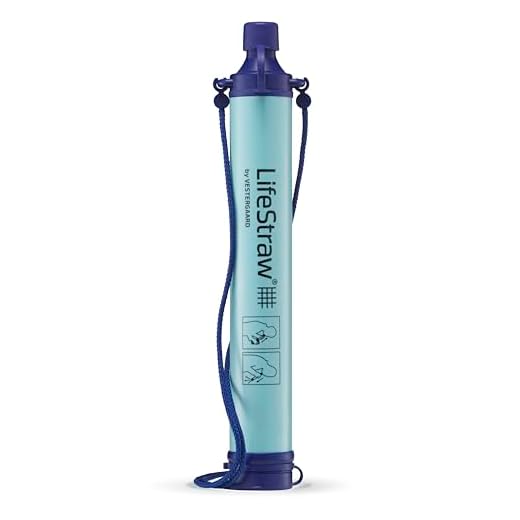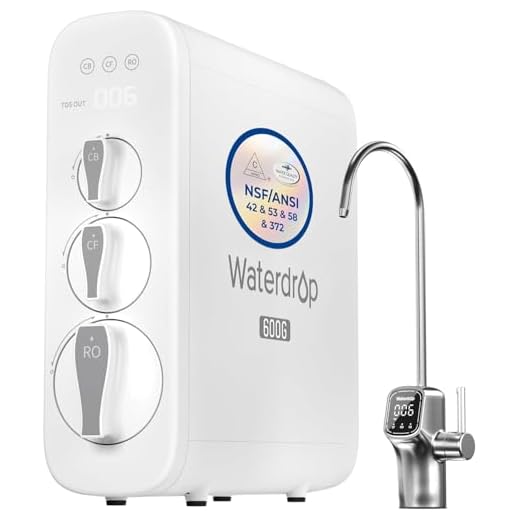




Safety Considerations for Children
Children’s health and safety are paramount when it comes to their access to drinking water. Contaminants present in tap water can pose risks, including harmful chemicals, bacteria, and heavy metals. These elements can negatively affect a child’s development and overall well-being. Filtering water can help reduce these hazards, ensuring that children consume cleaner water free from unwanted substances.
Parents often face uncertainty about the quality of water sourced from various locations. Different regions may experience varying levels of contaminants based on their infrastructure and environmental factors. Investing in water filtration can provide peace of mind, allowing families to ensure that their children have access to safe drinking water. By choosing filtered options, parents can take proactive steps toward safeguarding their children’s health and promoting a better future.
Evaluating the Safety of Different Water Sources
The safety of drinking water can vary widely depending on its source. Tap water often undergoes treatment processes designed to remove contaminants and is regularly monitored for safety standards set by government agencies. However, in some areas, older infrastructure may introduce lead and other harmful substances into the supply. Well water and natural springs may contain bacteria or chemicals that pose risks, especially if not properly tested and treated. Parents should consider these factors when determining the best water source for their children.
Bottled water is often perceived as a safer alternative, but it is essential to recognize that it is not always free from contaminants. Various studies indicate that certain bottled water brands may contain microplastics and other pollutants. Furthermore, the regulatory standards for bottled water can differ from those for tap water. Assessing the quality reports and sources of both municipal and bottled water can help in making informed decisions for children’s health. Each source presents unique considerations that require careful evaluation.
Cost-Effectiveness of Filtered Water
Investing in a water filtration system can lead to significant savings over time, especially when compared to purchasing bottled water. The average cost of bottled water can add up quickly for a family with children, who might go through several containers a week. In contrast, filtered water allows families to enjoy clean drinking water without constantly replenishing their supply. The initial purchase of a filtration system may seem steep, but many systems are designed to last for years, mitigating the ongoing expenses associated with bottled water.
On top of immediate cost savings, using filtered water promotes healthier hydration habits for children. With easy access to clean water at home, children are more likely to choose it over sugary drinks. This not only enhances their health but can also lower potential medical costs associated with diet-related issues in the future. A commitment to filtered water thus promotes both financial benefits and better health outcomes for the whole family, making it a smart choice for households concerned with both budgets and well-being.
Long-Term Savings Compared to Bottled Water
Investing in a water filtration system can yield significant long-term savings compared to purchasing bottled water. On average, a family might spend hundreds of dollars annually on bottled water, especially with children who require regular hydration. By using filtered tap water, the expense drops dramatically, often down to a fraction of the cost per gallon. This transition can free up funds for other essential purchases or activities, making it a financially sound decision.
The initial setup cost of a water filter may seem daunting, but it’s crucial to view it through the lens of long-term benefits. Filters can produce a considerable amount of clean water over their lifespan, reducing the need for continuous bottled water purchases. Many families who switch to filtered systems notice a positive change in their budgets, as they invest in sustainability while cutting down on recurring costs associated with bottled water. This strategy not only supports family health but also encourages wiser financial habits.
Environmental Benefits of Using Filters
Using water filters significantly reduces reliance on single-use plastic bottles. Each year, millions of plastic bottles contribute to environmental degradation, endangering wildlife and polluting waterways. By opting for filtered water, families can diminish their plastic waste footprint, fostering a healthier planet for future generations.
In addition to minimizing plastic waste, water filtration systems often have smaller carbon footprints compared to bottled water production and transportation. Manufacturing, shipping, and recycling plastic bottles requires substantial energy and resources. Transitioning to filter systems not only conserves these valuable resources but also promotes a more sustainable lifestyle, which is essential in combating environmental challenges.
Reducing Plastic Waste and Its Impact on the Planet
Plastic pollution has become a staggering global issue, with millions of tons of plastic waste entering the oceans each year. Single-use plastic bottles contribute significantly to this crisis, with many ending up in landfills or marine environments where they can take hundreds of years to decompose. By choosing filtered water over bottled, families can substantially reduce their plastic footprint. This choice not only benefits the environment but also promotes a more sustainable lifestyle for future generations.
Using water filtration systems at home can limit the demand for bottled water, which perpetuates the cycle of plastic production and waste. As more households adopt this practice, the collective impact on reducing plastic consumption can lead to healthier ecosystems. Encouraging children to engage in environmentally friendly habits, such as using reusable containers, fosters a sense of responsibility toward the planet. This shift in mindset can inspire more mindful consumption patterns that extend beyond just water choices.
FAQS
Why is filtered water considered safer for children?
Filtered water removes contaminants and impurities that can be harmful to children’s health, ensuring that they consume water that meets safety standards.
What types of water filtration systems are best for home use?
Some of the best water filtration systems for home use include activated carbon filters, reverse osmosis systems, and UV purification systems, each effective at reducing different contaminants.
How does using filtered water save money in the long run?
While the initial investment in a filtration system may be higher, using filtered water can lead to significant savings by reducing the need to buy bottled water, which can be more expensive over time.
Can filtered water help reduce plastic waste?
Yes, by using a water filtration system, families can significantly decrease their reliance on bottled water, thus helping to reduce plastic waste and its environmental impact.
Are there any health benefits for children when consuming filtered water?
Yes, filtered water can lead to improved hydration, better taste for children, and a reduction in exposure to harmful substances, contributing to overall better health and well-being.
Related Links
The Historical Impact of Clean Water on Public Health
What Are the Health Benefits of Drinking Filtered Water
Roundup of Health Benefits from Various Types of Water Filters

